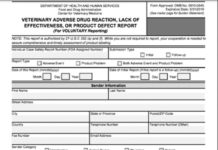Tryptophan for Dogs
The tryptophan/turkey theory became so popular and widespread in the early 1980s that nutrient-supplement companies decided to bypass the turkey part of the equation altogether and began producing and selling tryptophan supplements (L-tryptophan). These were initially promoted as sleep aids and to reduce signs of anxiety. However, as is the nature of these things, the promoted benefits of L-tryptophan rapidly expanded to include, among other things, claims that it would enhance athletic performance, cure facial pain, prevent premenstrual syndrome, and enhance attention in children with attention deficit-hyperactivity disorder. (My personal favorite was the promotion of L-tryptophan as a treatment for Tourette syndrome.)
Tricks to Giving Your Dog Eye Medication
Eye drops and ointments are prescribed for a variety of ocular conditions in dogs, including glaucoma, corneal ulcers, and recovery from cataract surgery. Even a minor eye infection like conjunctivitis what the kids in your grade-school days called pink eye" can require regular administration of drops."
The Dangers of Antibiotic Misuse for Dogs
A holistic veterinarian warns dog owners about casual or sloppy use of synthetic antibiotics, and what the consequences could be for your dog, and even you! Every year we are literally dumping millions of tons of antibiotics into our living environment each ounce of antibiotic with the potential to create yet another antibiotic-resistant strain of bacteria.
Administer Anti-Inflammatory Drugs to Your Dog With Care
Anti-inflammatory drugs are life-savers for many arthritic dogs, but used improperly, they can cause injury or even death. Veterinarians at the CVM regard canine NSAIDs to be safe and effective as long as consumers take precautions and pay attention to the labels and insert warnings.
Steroids for Dogs: Pros & Cons
Steroids are perhaps one of the most ubiquitous medications in the veterinary world. They can be used for a host of problems ranging from inflammation and allergies to autoimmune disease. While they are incredibly useful and diverse medications, steroids are not without significant side effects. It is important to know why they are used and how they can best be used. It is also critical to realize the possible negative effects and interactions that can occur. Steroids are not benign.
Joint Supplements for Dogs
If your dog has been diagnosed with a joint disease such as arthritis, then youre probably no stranger to the world of joint supplements for dogs. Just visit your local pet store, and you will see that options abound. The choices can be confusing. There are chews, powders, and even diets that claim to improve canine joint disease. But which of these supplements are legitimate, and how can you tell?
Pharmaceuticals for Dogs: There Is No Magic Pill
Pet pills are big business, raking in an estimated $3 billion last year and growing by 20 percent each year. Pharmaceutical companies have found they can modify human drugs for pets without much additional research expense. The Food and Drug Administration (FDA) has approved 15 new behavior-altering drugs for veterinary use in the last year and a half. The two new canine drugs receiving the biggest ad blitz and the most mainstream media coverage, Clomicalm and Anipryl, both were adapted from human drugs.
Dogs with the MDR1 Mutation: Drug Sensitivities
Most dog owners are aware that Collies and other herding breeds may be sensitive to ivermectin, used for heartworm prevention and to treat certain parasites. But did you know that these dogs can also be sensitive to a number of other drugs, and that other breeds can also be affected?
Reporting Dogs’ Adverse Reactions is Your Duty
It seems that is rare for a week to go by that we dont hear about - or even experience - yet another pet illness or reaction to animal food, drugs, vaccines, or pesticides. At times, Whole Dog Journals articles and blog posts will include the advice to report any adverse events. And its excellent advice - so heres when, how, and why you should report these events.
Doxycycline Shortage leaves People and Pets Scrambling for Treatment Alternatives
Drug of choice for treating tick-borne disease and heartworm is unavailable (or unaffordable) due to supply bottleneckWhen my newest search and rescue partner, Cole, fell apart during a certification test in May 2012, I had accumulated enough hard lessons to know my next move. We didn't need to revisit our training protocol or take his nose in for a tune-up. We were at our vet's office the next morning for bloodwork.
Understanding Behavior-Altering Drugs For Dogs
Ten years ago, my dog Piglet woke me in the middle of the night, trembling violently and utterly terrified. It took me hours to track the source of her panic to a barely audible high-pitched beep that sounded once every two minutes, coming from a smoke alarm’s low battery indicator. Behavior-altering drugs can help dogs with phobias or anxiety disorders but you have to learn which ones work best in each case.
Proteolytic Enzymes – Natural Pain Relief for Dogs
Enzymes given with food are used for digestion, but certain enzymes (proteases, which break down proteins) can also help with inflammation, pain, recovery from injury, and more when given apart from food. Systemic enzyme therapy, also called metabolic or proteolytic enzyme therapy, allows enzymes to enter the body where they can be used for healing rather than digestion. Examples of proteolytic enzymes include pancreatin, trypsin, and chymotrypsin (from the pancreas); bromelain (from pineapple); and papain (from papaya).



















